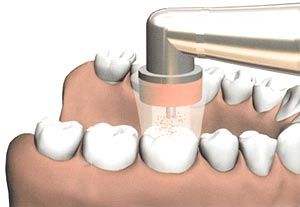- Best Practices New Normal
- Digital Dentistry
- Data Security
- Implants
- Catapult Education
- COVID-19
- Digital Imaging
- Laser Dentistry
- Restorative Dentistry
- Cosmetic Dentistry
- Periodontics
- Oral Care
- Evaluating Dental Materials
- Cement and Adhesives
- Equipment & Supplies
- Ergonomics
- Products
- Dentures
- Infection Control
- Orthodontics
- Technology
- Techniques
- Materials
- Emerging Research
- Pediatric Dentistry
- Endodontics
- Oral-Systemic Health
Weekly Tech: Is Ozone Therapy Too Good to Be True?
Technology is quickly transforming dentistry. From digital record-keeping to machines that seem straight out of a SciFi feature, the 21st century has gifted the medical industry some amazing devices. Dentists are especially proactive about adopting new technology in their practices, so DMD is bringing you a weekly spotlight on some of the best products on the market. Continue below to read about this week's focus, ozone therapy.

While ozone therapy has only recently received widespread implementation, it was first used in the 1930s.
Filling cavities is a simple procedure and one that dominates most of a dentist’s typical treatment schedule. Anxious patients, especially children, make this task exponentially more complicated.
RELATED:
- Is Back Pain the Bane of Your Existence?
- Get a Leg Up on Business Tax Filing
- Green Tea Polyphenols — A New Treatment for Tooth Sensitivity?
Sedation dentistry is one option, but for most general dentists, this solution isn’t practical. Enter HealOzone, the first needle-free, painless solution to stopping tooth decay in its tracks. Sounds like a perfect solution, right?
Ozone therapy sounds ideal on paper — and as with most things like sound ideal, this technology is not conclusively effective for a practice’s finances.
“Any treatment that preserves teeth and avoids fillings is welcome. However, the current evidence base for HealOzone is insufficient to conclude that it is a cost-effective addition to the management and treatment of occlusal and root caries,” a Health Technol Assess review says.
In fact, studies demonstrating the effectiveness of ozone therapy prior to 2006 were riddled with bias, according to a report from Evidence-Based Dentistry. Individual studies were inconsistent in the effects of ozone on caries, and only one trial reported an absence of adverse effects.
“There is no reliable evidence that application of ozone gas to the surface of decayed teeth stops or reverses the decay process,” the reviewers said. “There is a fundamental need for more evidence of appropriate rigor and quality before the use of ozone can be considered a viable alternative to current methods for the management and treatment of dental caries.”
A Second Opinion
Since the publication of these studies, however, more research has investigated the application of ozone with positive conclusions, even finding that ozone has preventative properties when it comes to caries.
However, for existing caries, William C. Domb’s review for Interventional Neuroradiology agreed that traditional fillings may be the best option for preventing further pain and decay.
“Even extremely deep lesions can quite predictably be arrested. We also have found over the last decades that we can reverse early lesions and heal teeth,” Domb said in his review. “However, once there’s a hole, there’s a hole, and sometimes our full restorative technologies need to be brought to bear in order to repair the damage.”
Ultimately, Domb finds that most carious lesions can be reversed by the use of ozone therapy. As such, unless a treatment is effective for all instances of decay, sticking to tried-and-true fillings is the only sure-fire way to ensure your patients see positive results. If you’re keen on using this method for treating any kind of caries, be sure to put your patients on a regimen of fluoride-containing products, reduced sugars and diligent oral hygiene.
In specialized dentistry, ozone has become a saving grace to prevent the spread of infection and bacteria. Endodontists are finding that ozone’s antimicrobial properties make the therapy advantageous when delivered into root canals following traditional cleaning, shaping and irrigation, according to The Saudi Journal for Dental Research.
“When used as an irrigant, ozone encourages tissue regeneration and bone healing. Also, when a root canal was disinfected by ozone water with sonification the antimicrobial efficacy was comparable to 2.5 percent NaOCI,” the review states. “Hence in periapical infections, ozone therapy can increase the scope of nonsurgical management of these lesions.
Ozone therapy can also help patients suffering from hypersensitivity and periodontal disease. Ozone gas and ozonated oils and water can be applied directly to an abscess or area of infection to reduce and even eliminate bacteria, according to Domb.
So, is Ozone Therapy Effective?
In conjunction with preventative measures and consistent use of fluoride, it can be a viable solution for early caries in children and other needle-phobic patients. However, the method is best used for specialized dentistry to curb the spread of infection and bacteria after the use of traditional treatments.
Discover more Dentist’s Money Digest® news here.
